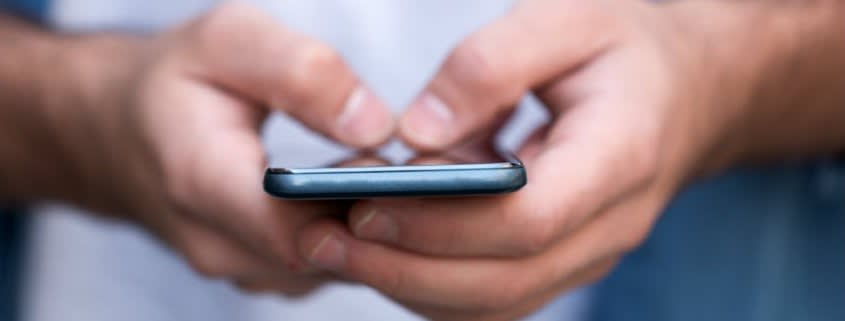
THE DANGERS OF POSTING ON SOCIAL MEDIA AFTER A CAR ACCIDENT
In this day and age, the overwhelming majority of adults use social media to some degree. Facebook, Instagram, Twitter, and similar platforms are great tools to stay connected with family and friends and to post updates on what is happening in your life. Unfortunately, sites like Facebook can become your worst enemy if you are injured in a car accident.
If you are in the process of filing a personal injury claim, the best advice is to shut down your Facebook and other social media accounts while the claims process is ongoing. But we all know that this is much easier said than done. At the very least, you should significantly limit your social media activity, and be very careful about anything you post online.
How the Other Side may Use Social Media Against You
After being injured in an auto accident, assume that anything you post on social media will become public information. And here are just a few of the pieces of information about the accident the other side will be looking for:
Photos of the Accident Scene: People like to post photos to show what is happening in their lives, and it is very tempting to post pictures of an event as traumatic as a car accident. Avoid posting any such photos – these can be used by the other side and taken out of context to weaken your claim.
Comments you Make about the Accident: As you post photos, you may also be tempted to make various remarks about the accident, who was at fault, and even expressing regret about something you did that might have contributed to it. Any comments you make can also be taken out of context to undermine your claim. And in a state like Virginia where they apply the contributory negligence legal doctrine, any admission of fault (even just an implied admission), could be devastating to your chances of recovering compensation.
Comments Made by Witnesses and Friends about the Accident: Simply posting a status update reporting your accident can be damaging even if you say nothing about it. Your post could attract comments by others who might have been with you during the accident or may have seen it. Again, any of these comments can be twisted and taken out of context to weaken your case.
Comments and Photos that You Post Regarding your Medical Condition: While you are recovering from your injuries, you might be tempted to post updates and maybe some photos telling others how you are doing and how your recovery is going. Avoid posting any updates like these that relate to your claim.
Even Information Unrelated to your Claim Can Hurt You
You may be surprised to learn that even if you post updates that don’t mention your injury at all, they can still hurt your claim. For example, if you and your family take a vacation to Virginia Beach and you post photos of you smiling, laughing, and having a good time, the other side will most likely question how injured you really are. Even if there are no photos of you doing any strenuous physical activities, just a picture of you enjoying yourself could be shown to a jury as proof that your injuries are not as serious as you are claiming.
Private Profiles are Not Private
Many personal injury victims offer the compromise of saying, “I’ll put very strict privacy settings on my profile, so the other side will never see it.” There are two major problems with this line of thinking:
Insurance Companies have Vast Resources: You may think that your profile is private and no one outside of your close circle of family and friends can see it, but this is not necessarily the case. Insurance companies know that social media can offer them ample opportunities to undermine your claim, and they have the ability and resources to often uncover information that you thought was private.
Your Social Media Activity can be Subpoenaed: Even if the other side does not obtain your social media activity through their own efforts, they can still ask for this information during discovery. Legally, there is no right to privacy on social media, and postings on Facebook and other platforms are considered public information. All of your social media activity can be subpoenaed, including private messages, so assume that anything you post anywhere on social media will eventually be seen by the other side.
Beware of Getting “Tagged” by Others
One final point that is important to note, when you are adjusting your privacy settings, be sure not to allow yourself to be tagged by other social media connections. Imagine yourself on that same Virginia Beach vacation thinking everything is fine because you didn’t do anything on social media, then seeing yourself tagged by one of your family members or friends that was along with you. To avoid these types of surprises, make sure you have no chance of showing up on anyone else’s social media page.
Injured in a Car Accident in Virginia? Call an Experienced Personal Injury Attorney
In today’s electronic age, social media activity can severely undermine a personal injury claim. There are numerous other potential pitfalls that can hurt your case as well, and this is why it is best to obtain skilled legal counsel as early as possible after an accident, so your right to recover compensation can be protected.
If you or a loved one was injured in an auto accident, contact Schilling & Esposito today for a free consultation. Call our office at 804-261-1001 or message us through our web contact form. You may also stop by our office in person at your convenience.